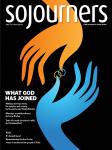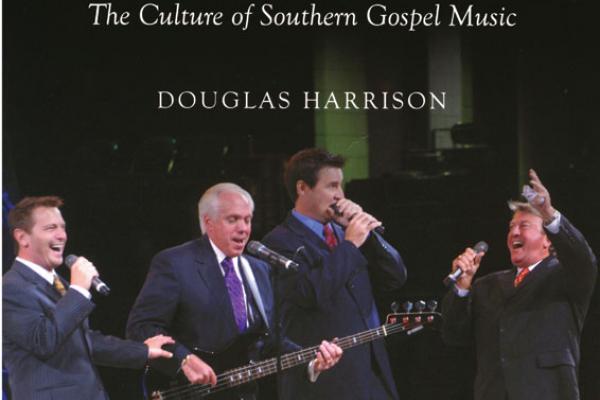IF YOU GREW up like I did—surrounded by PraiseGathering devotees and with Gaither Family VHS tapes stacked on the home entertainment system shelves—you probably have a frame of reference for Douglas Harrison’s Then Sings My Soul. If you weren’t raised on such a specific Bible Belt diet of white male quartets and singspirations, Harrison’s use of the term “Southern gospel” may initially seem confusing, if not meaningless.
According to Harrison, Southern gospel wasn’t labeled as such until the 1970s, and the label didn’t catch on with mainstream audiences until the 1980s. Before then, all genres of gospel—sacred music spanning regions, decades, ethnic heritages, and faith-based traditions—were given the broad label. As Harrison defines it in what is arguably one of the first contemporary attempts to do so, Southern gospel is a participatory style descending from a “post-Civil War recreation culture built around singing schools and community (or ‘convention’) singings popular among poor and working-class whites throughout the South and Midwest.” While he notes that most rigorous investigations of gospel’s longevity and legacy refer to black gospel, Harrison departs from this framework and instead focuses on the likes of the Blackwood Brothers Quartet, The Cathedrals, and gospel impresario Bill Gaither, pasty proselytizers without whom the 20th century gospel movement would not exist.
Harrison has been blogging (at averyfineline.com) about Southern gospel for the past decade, during which he’s showcased his deep knowledge and fondness for the genre’s mid-tempo nostalgic modernism, a retro style performed without irony by up-and-coming artists. His is an outsider’s, nonbeliever’s ode to professional, commercialized gospel entertainment, a style attributed to a variety of performers. “Southern gospel was what Elvis Presley really wanted to sing,” Harrison notes. He goes on to identify Southern gospel’s evangelists as a cluster of record and distribution labels, organizations such as the National Quartet Convention, and the Gaither Homecoming phenomenon (including videos, music recordings, concert tours, and even cruises under that branding), all of which share a common historical, economic, social, and cultural heritage.
“The effect is a respectful playfulness,” Harrison writes, “both commemorating a rural evangelical ethos of rustic piety and flashily celebrating the vernacular music culture of Southern gospel that descends from that rusticity.”
Intellectualizing one’s favorite music can occasionally (if unintentionally) render it joyless, but Harrison manages to avoid this pitfall. Though he may be an unlikely devotee of the genre, one can easily infer his visceral, abiding appreciation for all the pomp and piety inherent in the gospel wellspring he lovingly describes. In an interview with Religion Dispatches, the once-closeted preacher’s kid explained that in writing Then Sings My Soul, he sought to answer a deeply personal question: “Why is a gay secular humanist academic who left the world of orthodox fundamentalist evangelicalism half a lifetime ago still singularly captivated by Southern gospel music?” In a musical culture he describes as being known equally for its gratuitous showmanship and bonhomie, Harrison finds a simple answer. If what speaks to your soul happens to support your worldview, all the better. But unwavering belief in the message is only one aspect of appreciating four-part harmony. Music and its meaning are not bound by orthodoxy.

Got something to say about what you're reading? We value your feedback!
